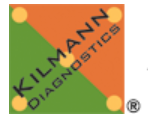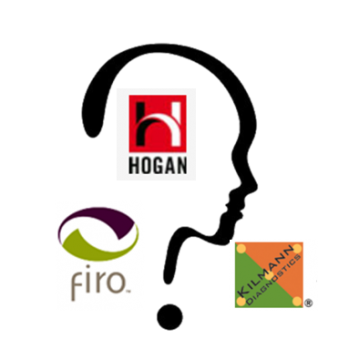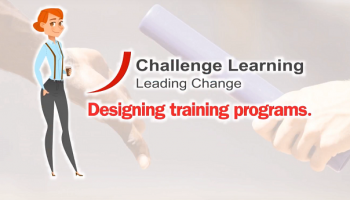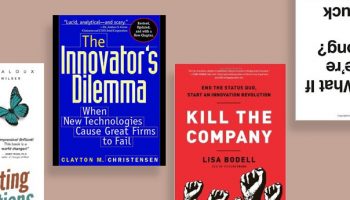The dilemma of choosing an assessment instrument (part 2)
– by Nanette Orsini and Beate Vetter – Challenge Learning France and Switzerland
(mao@challengelearning.com, beate.vetter@challengelearning.com )
In part 1 of our series of articles on assessment tools was referring to those generally known as personality instruments which are frequently used in leadership Development Programs or in Team Workshop (See The dilemma of choosing an assessment instrument (I)). We will now be touching upon another category which is developed around behavior theories in specific circumstances or determined context: Stress, Difficult situation or Conflict. More specifically, we will briefly explore Hogan, Firo B and the Thomas Kilmann Conflict resolution (TKI).

Most Hogan tools aim at fostering organization performance based on the underlying belief that “personality is a predictor of performance”. With a solid foundation of research data, Hogan provides a very vast palette of instruments. We will talk here about two assessments which focus on the concept of the derailer. Morgan McCall professor of Management at USC Marshall School of Business was one of the first researchers to study derailments of executive talent in the ‘70s. Based on these studies, Hogan developed two tools: the Challenge report and the Dark side of personality. Both identify the behavioral flaws which may impact a leadership career. When the pressure is on, the line between strength and weaknesses is not clear – that’s when determination becomes a hard-nosed drive, devotion to detail becomes micromanaging. The dark side of personality derails careers and companies. The Challenge Report predicts career-derailing behaviors that interfere with building a cohesive and positive environment conducive to performance and effectiveness. It describes 9 natural behavioral preferences, which in normal circumstances are part of your own unique way of interpreting the world and dealing with your environment. Each of these, while under stress or difficult situations, is likely to lead to extremes.
Frequently used in Assessment centers and/or hiring interviews, the Challenge report or the Dark side of the personality, provide a solid base for discussing the potential leadership flaws which may emerge. The terminology (typology) can lead to misinterpretation, therefore it is best not to leave the candidates “unattended” and spend time debriefing either of those instruments.

The history of Fundamental Interpersonal Relations Orientation-Behavior or FIRO B is quite interesting. Its framework was developed in the 50s by a Harvard Scientist named Will Shultz following a contract with the American Naval Research Laboratories. The premises of the theory is that people’ interpersonal needs motivate behaviors.The US Navy was trying to understand why certain teams, particularly in submarines after 20+ days at sea, where doing better than others. Will Shultz developed the model of 3 fundamental human needs: Inclusion, Control, Affection. Those needs are modified by two factors: the expressed behavior and the wanted behavior. The expressed behavior is how comfortable we are at expressing and verbalizing each of our needs. The wanted behavior is related to how we want other people to exhibit control, inclusion or affection towards us.
This is an interesting tool to use with intact teams, looking at interaction and the potential misunderstanding between expectations and perceptions. The results are shown on a scale from 0 to 9 in 6 categories. The questionnaire is short to do in paper format but is also available online.

The Thomas Kilmann Inventory (TKI) has been in existence for the past 30 years. It is now offered by many different organizations including the Kilmann Diagnostic, CPP, OPP and the Hay Group. Many pirated versions exist on the web but you may wish to stick with the accredited providers. The tool is built on 30 sets of double statements to choose from which will result in a range of scores, grouped around 5 profiles: Competing, Collaborating, Compromising, Avoiding and Accommodating. These common conflict management behaviors are analyzed with their pros and cons or their relevance in specific situations. TKI is yet another pair of lenses for looking at behaviors and preferences in team dynamics. Despite its focus on conflict situations, it is used even in teams and leadership development initiatives. Common believes should allocate negative attributes to some of the conflict resolution styles but the TKI provides a good neutral ground for exploring these behaviors. It provides a safe environment for discussing the conscious or unconscious attitude we choose which may impact others and group dynamics. We are not aware of the database used by TKI (width and depth) or what has been done in cross-cultural calibration, but it remains a very widely used tool.
Part 3 will review the framework of several 360o feedback tools which we find to be quite solid. The LEA from the Management Research Group, The Booth Task Cycle, and the Hogan Leadership 360o. We will also take a look at tailored 360-degree instruments which can be customized for your needs.



